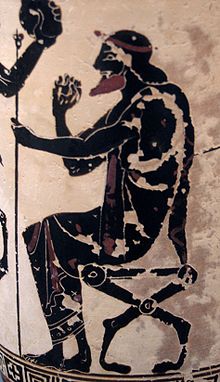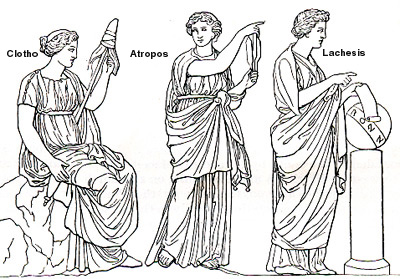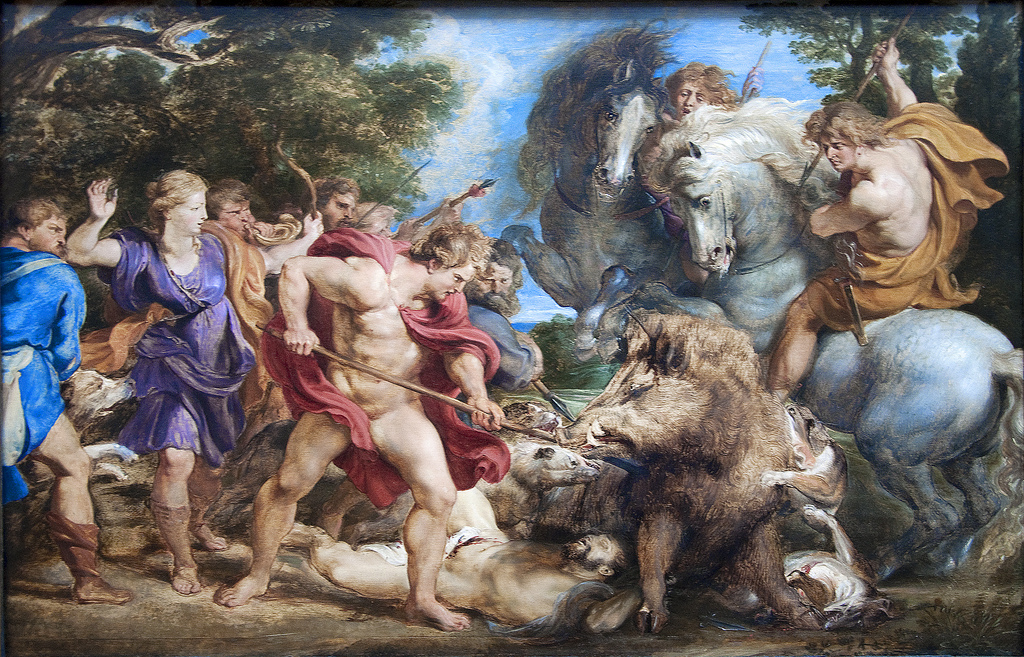You are currently browsing the tag archive for the ‘destiny’ tag.
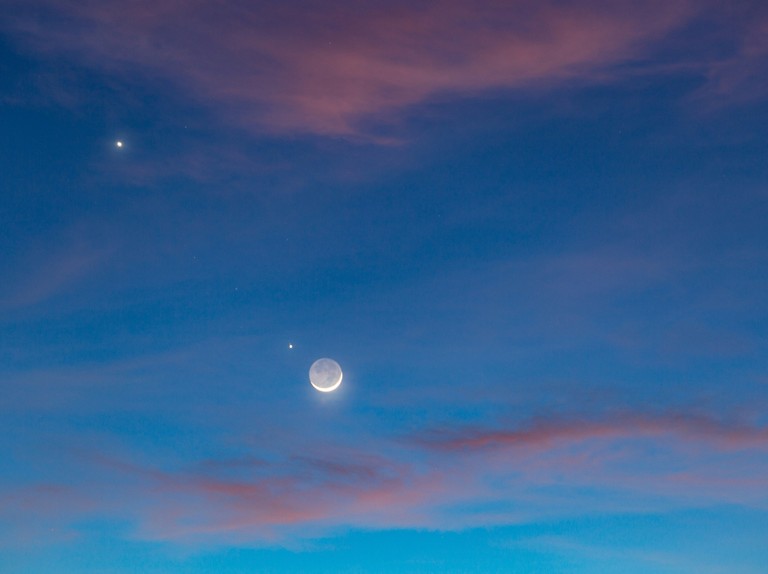
I was really alarmed by how many people saw the report of (potential) life signs on Venus and immediately said “We need to cease all space exploration and never look beyond the Earth”. For example, the Christian columnist at “The Week” wrote a characteristically dimwitted column about the subject [coincidentally, it strikes me as funny that followers of Abrahamic faiths worship an omnipotent extraterrestrial wizard, yet clutch their pearls about space!].
Yet even people who do not take such absolutist anti-knowledge position, are still wary of bigger plans for space-faring. Right here, in Ferrebeekeeper’s comments, our own frequent reader K Hindall, took a more nuanced, but still restrictive view:
“I am all for the exploration of space, but not establishing a permanent human presence elsewhere…We need to prove that we can take care of a planet before we go bounding off to live on other ones. It’s like giving another toy to a child who has proven that they just break their toys, not play with them. When we’ve stopped driving everyone else on the planet into extinction, then it will be soon enough to talk about living on a different one.”
It is well said (and I left out the part where K Hindall ably defend the space sovereignty of the Venusian bacteria). Yet I worry that it is wrong-headed (please keep commenting K Hindall! You know we love you).
Lately I have seen more and more philosophical arguments that humankind should have never developed agriculture or civilization. Although these arguments do indeed seem to have a fair amount of moral and ecological validity, they somewhat overlook the facts on the ground right now. We are an aggressive invasive species which has gotten everywhere. What is to be done?I agree with K Hindall that humanity is not to be trusted. Yet does that mean we must resign ourselves to never dream beyond the Earth? I keep thinking about the fable of the animals and their gifts (a story which presents a powerful dark truth human nature). We are destroying the world with our gifts–which seem greater and darker by the day. And yet despite all of this strength we cannot agree with what is proper to do or what rules we must follow. Indeed our disagreements on these points are a further cause of our destructiveness!
In fact I worry that K Hindall has it backwards: humankind won’t be able to desist from destroying ourselves and our fellow Earth life unless we find a more suitable frontier for our boundless appetite and ruthless cunning. If we wanted to stop using up the Earth right now, we would have to live with hundreds of thousands of super intrusive new rules that nobody would ever agree to (no more children for most people, no more of most categories of useful chemicals, no more pets, no more flower gardens, no more travel, no more beef, no more luxury –a tiny beige microcube and a set of mostly-incomprehensible, ecologically-useful tasks for everyone!). Perhaps people would accept such austerity for dreams of mansions on Jupiter, I doubt they would accept it to know that somebody else’s ever-so-great-grandchildren can live in “Logan’s Run”.
If they exist (which I doubt), the Venusians might already be earth life, brought by some meteor or Soviet probe. Maybe the opposite is true and we have all been Venusians (or some even more esoteric alien ) all along. I am not sure that it is wrong for living beings to reproduce and expand into new territories–it is the nature of life!
Pragmatists will say that this whole essay is like writing about whether it is wrong to fly around like Superman and shoot powerful beams out of your eyes. We can’t do that anyway! So why worry about it? And yet…every year we have better flying devices and better high energy beams. Who is to say what is possible? Our dreams shape our abilities. And casting our dreams towards a worthwhile pursuit might be a way to finally grow up out of childhood.
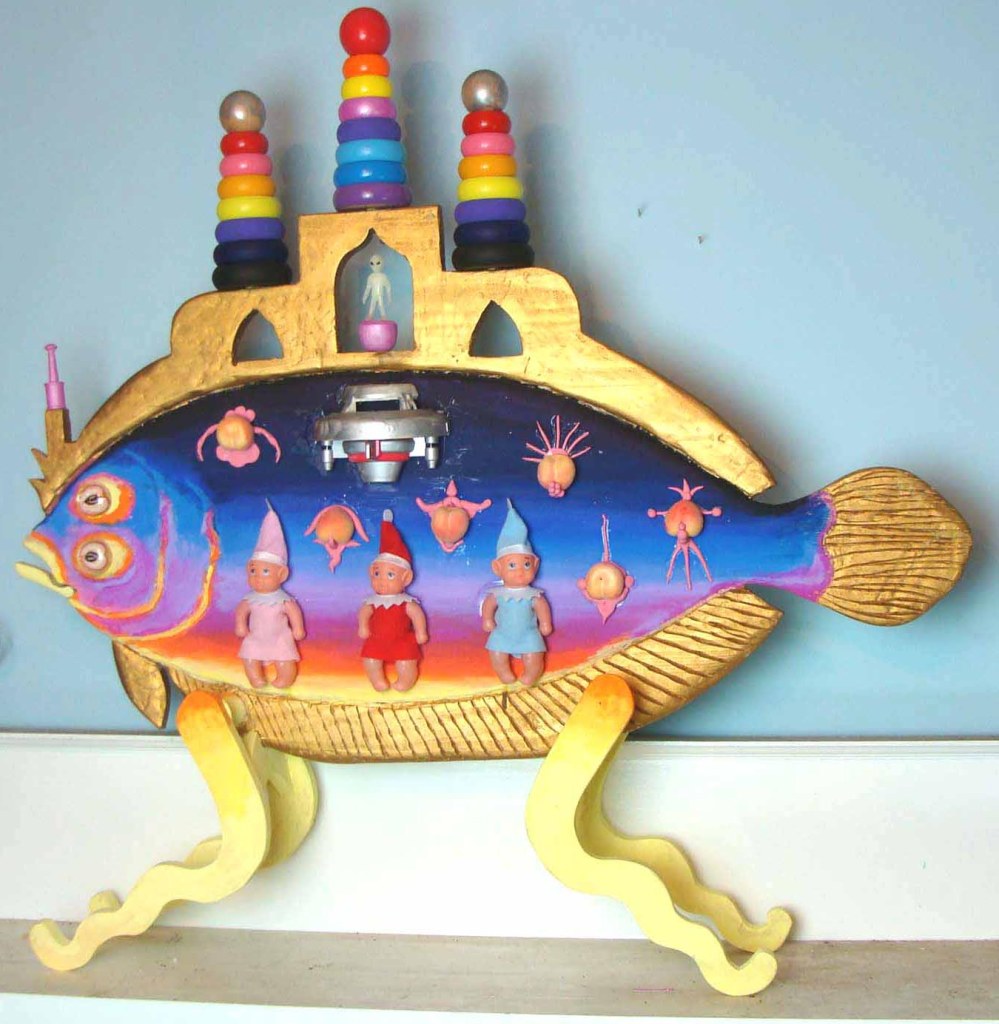
Just like the bamboo destroys itself (and the whole forest) by flowering, we are destroying the world ecology. My fondest hope is that we are doing this for a purpose: to cast the precious seed of Earth life up into the heavens. Even if we gain wisdom, power, and prudence beyond all measure everything could go wrong with this plan. We could destroy other worlds. We could destroy ourselves. It is still worth risking though. Plus the whole reason that Bonnie Kristian (whose name seems suspiciously fake) is alarmed by humans is that we don’t do what we are told. We do what we are able.

Balaam and the Angel (Gustav Jaeger, 1836), oil on canvas
Do you know the story of Balaam from the Old Testament? Balaam was the greatest magician and prophet of the Moabites, who were the enemies of the Israelites (who were nearing the end of their exile in the desert under the leadership of the dying Moses). In brief, Balaam was main villain of the final stage of the Exodus: sort of an anti-Moses. If things were written from the point-of-view of the Moabites, Balaam would have been the hero! In fact, we even get POV episodes in the Bible which follow him on perilous magical missions…which are thwarted by the terrible power of God.
In the most (in)famous of these episodes, Balaam is riding off to commit some nefarious act when the donkey he is riding balks. The donkey can see that there is a sword-wielding angel in the path in front of them. In anger, Balaam savagely beats the donkey, which starts to speak! Here is the episode as set forth in the King James Bible (Numbers 22):
And when the ass saw the angel of the Lord, she fell down under Balaam: and Balaam’s anger was kindled, and he smote the ass with a staff.
28 And the Lord opened the mouth of the ass, and she said unto Balaam, What have I done unto thee, that thou hast smitten me these three times?
29 And Balaam said unto the ass, Because thou hast mocked me: I would there were a sword in mine hand, for now would I kill thee.
30 And the ass said unto Balaam, Am not I thine ass, upon which thou hast ridden ever since I was thine unto this day? was I ever wont to do so unto thee? and he said, Nay.
31 Then the Lord opened the eyes of Balaam, and he saw the angel of the Lord standing in the way, and his sword drawn in his hand: and he bowed down his head, and fell flat on his face.
32 And the angel of the Lord said unto him, Wherefore hast thou smitten thine ass these three times? behold, I went out to withstand thee, because thy way is perverse before me:
33 And the ass saw me, and turned from me these three times: unless she had turned from me, surely now also I had slain thee, and saved her alive.
34 And Balaam said unto the angel of the Lord, I have sinned; for I knew not that thou stoodest in the way against me: now therefore, if it displease thee, I will get me back again.
So what is the point of this story? I suppose a rabbi or a Catholic priest would tell you it is about how it is futile to withstand the command of YWEH or some kind of hegemonic orthodox lesson of that sort (indeed, Balaam is frequently stuck in situations where he can perceive that his actions will not alter what is to come). Fortunately, we don’t actually believe in a giant omniscient space wizard in the sky, so we can look at the passage with a more literary eye.
And, it makes for an intriguing metaphor about humankind’s relationship with the natural world! Balaam’s donkey is perfectly capable of seeing the angel and she tries to save her human rider, who pays her back by intemperately beating her (despite her leal service) . Poor wicked Balaam is unable to figure out what is going on (even with the donkey telling him) until the angel sighs heavily and expositions the whole thing for him. His desire for power and status are so great that he ignores what the long-suffering animal ass tells him, first with her actions, and then when she speaks with the very voice of God.
Of course the real world does not benefit from invisible angels or talking donkeys, so here we have something more like Raskolnikov’s dark dream from Crime and Punishment (where a drunk peasant beats his suffering old horse to death for failing to pull a load which he (the peasant) had loaded too heavily). Everywhere we look we see that animals are dying from our crazy desperate actions. Do we pause to heed this horrible lesson? Do we ask whether a dark angel of doom stands invisible yet implacable immediately before us? No! We curse the oceans for not having enough fish. We execrate the bats for harboring coronavirus. We shoot the polar bears for starving to death in a desolation we have created.
Of course Balaam is hardly a free agent. He has a king who commands him to act as he does. He has a nation of people to save from invaders. He has to buy provender for his donkey and altar accessories and who knows what else. We would probably feel sorely used if we were in his sandals. Indeed, that is part of what makes me think we ARE Balaam. Right now the donkey we are riding is starting to fall down. Are we asking the right questions about our own actions or are we reaching for the rod?


Today, when I was looking at the comments, I noticed that a perspicacious reader asked the question which is most important to me! Wow, I guess I had better answer that, but it is going to take more than a few sentences, so I might as well make it into a whole blog post.
Before we get to this question and answer, let’s provide a brief high-level overview of Ferrebeekeeper’s weltanschauung.
My philosophy of life is premised on a single transcendent belief. Earth life must evolve and move into the cosmos like the hundreds of millions of fertilized eggs of a great sunfish disseminating through an ocean of stars.

Humankind needs to put aside tinpot dictators, idiotic religious wars, disposable plastic consumer goods, luxury vehicles, and all of our other (horrible) favorite things and dedicate ourselves wholeheartedly to this task or else, before you know it, everything is going to look like the opening scene of “Wall-E” and our chance will be gone. In fact the opportunity is passing us by right now as you read this and everybody talks about 5G phones, Nipsey Hussle, and Jared Kushner.
Yet one of my stubborn readers looked at this premise and asked “why?”. To be exact they said “Can you explain your viewpoint that humans must become space travelers for redemption? To me, it seems that would be a kind of interplanetary metastasis…”

If you had an adult bull elephant stuffed in your Manhattan studio apartment it would seem like a nightmarish monster, but out on the veld, the elephant’s habits would make sense, and its beauty, strength, and noble nature would become apparent. Humankind has become like the elephant in that scenario (I really think we are more like 7.5 billion giant smart termites, but bear with me). We are meant to explore and build at a stupendous scale, but we can’t because we have used all available resources to the point that we are unmaking the complicated webs of life which all eukaryotic Earth life relies on (and maybe because we are hijacked by our own primate nature, too). We can’t keep doing what we are doing. We will destroy ourselves and countless other living things. Our hideous fall might even reset life back to a point from which it could never properly attain its complexity and beauty (I am speaking of all known Earth life here–for I think it is all one thing).
We can’t let go and turn back either. The ultra-competitive world we have made does not work that way. Even if America collectively says, “we chose to not compete, we will close our borders, dream of past greatness, and eat our young” China or India will come sprinting up with new dreams of global empire. Even if we all became organic free-range hunter-gatherers it wouldn’t work.
Yet the things we truly need in order to flourish–space, energy, and freedom from the dreadful hegemony of other people’s idiocy–are super abundant in the larger universe. Imagine a future where Earth is a protected park and we hover above it like dark angels carrying out crazy cosmic wars and far-flung projects and warped super experiments and doing whatever we want…with the stipulation that anyone or anything which threatens Earth is instantly subject to our collective wrath.

I am not sure any of this is possible. In fact it seems like getting back to the moon may be beyond us to say nothing of building flying cities in the atmosphere of Venus or torus colonies orbiting around Jupiter. Yet those things are at least theoretically in the realm of possibility. Traveling beyond the solar system may truly be impossible, even if we built worthy superhuman thinking machines as our offspring and successors (coincidentally I never promised the answer to this question would be easy or even sane).

But I think the reader’s fundamental moral question remains unanswered. If humankind is so savage and dark, would we not bring our rapacity and carelessness with us no matter where we go? Inventing tools and language never made us better. Sailing across the great oceans never taught us compassion. We are the same tragic fire-wielding apes as always. It takes real imagination to conceive of a human starship decelerating into Fomalhaut or orbiting Wolf 1061C, yet it takes no imagination whatsoever to imagine the political appointee in charge of such a craft looking at his “S.M.A.R.T.” terraforming spreadsheet, shrugging, and pushing a button to wipe out the cowering Fomalhautians or the little adorable Wolflings. “Specific, Measurable, Attainable, Relevant and Timely”...that Fomalhault branch of Goldman Sachs won’t build itself if we wait around to determine whether the natives are delicious or not! (let me know if I have captured your thinking, hooftales).
My initial answer was that it is necessary to move beyond Earth…because we are so violent and disorganized that we are dangerous to ourselves and others–a cancer, like hooftales said. But, although in moments of duress, I sometimes think of humans as baboons with motor cars, I don’t think of us a cancer. We are not outside of the web of nature: we are part of it. An elephant in a tiny coop would be a travesty, but elephants are magnificent and sympathetic. Humankind is having an awkward adolescence to be sure, but I don’t think we have fully manifested as ourselves yet.
Let me answer a different way. Bamboos form clonal colonies. These giant grasses are intrusive, fast-growing and aggressive plants. Sometimes a single bamboo will take over a whole region–almost the entire forest is one connected living thing. These bamboo can live for a long period–40 to 130 years–but when they flower, the whole clonal colony flowers. In some species, the whole species flowers…no matter where they are in the entire world. Then they produce seeds/fruit called bamboo rice.
And then they die.
Whole forests die in a short time, sometimes causing starvation and mayhem to other living things that rely on the bamboo. Sometimes a whole bamboo species will die off and all of its offspring are so different that they aren’t even the same thing. But then they grow anew–bigger and better and more competitive and they create whole new forests.
![bamboo-flowering-rats[6]](https://ferrebeekeeper.wordpress.com/wp-content/uploads/2019/04/bamboo-flowering-rats6.jpg)
A bamboo flower rat

Not all flowers bloom (just ask the beheaded crocuses in my back yard) but we must try with all of our might to carry the precious seed of life into the heavens. If we can’t do that–if, perhaps, it can’t be done–at least our striving will not have been for nothing. And if we succeed…well… to live in the boundless abyss of emptiness all together in great fragile terrariums that could die if we get a wire crossed, we will have to truly change. I for one am heartily sick of what we have been doing lately and I relish the challenge. What about you? Do you want to go on a colossal multigenerational adventure to the stars themselves, or do you just want to sit here eating snack packs while we use up the planet?
In Greek mythology, King Oeneus of Calydon was one of the great mortal heroes of his day. Just as Demeter had taught Triptolemus the secrets of growing grain, Dionysus himself taught Oeneus the secrets of unsurpassed winemaking. The merry monarch brought grape culture and the vintner’s arts to all of Aetolia and he grew rich and beloved because of his teaching and his greatness at making wine. To this day “oenophiles” are people who love wine.
The monarch was even luckier in his family. He was married to Althea, a granddaughter of the gods who was said to be nearly as beautiful as her sister Leda, who drew the eye of Zeus himself. He had many sons and daughters: Deianeira (who wed Heracles), Meleager, Toxeus, Clymenus, Periphas, Agelaus, Thyreus (or Phereus or Pheres), Gorge, Eurymede, Mothone, Perimede and Melanippe. But of all these Oeneus’ eldest son Meleager stood out as the greatest hero of his era—a peerless spearman and warrior.
Meleager had nearly died in infancy. His mother Althea was spinning flax when she heard the three fates—the ancient and alien goddesses of all destiny– discussing the baby boy. Old Atropos had pulled out her scissors and was saying that as soon as the brand burning in the fireplace was consumed, the child’s life would end. Althea threw away her weaving and grabbed the blazing log out of fire. She smothered the blaze and hid the log away in a huge locked coffer. Thus Meleager grew into magnificent manhood.
King Oeneus loved the gods and he sacrificed generously to them, but he loved his wine and he drank generously too. One year as he sacrificed to the Olympians he forgot to sacrifice to Artemis, the goddess of the hunt (who was not foremost on his mind anyway since he was a farmer and a wine maker). Alas, it was a terrible error. In her wrath the virgin huntress summoned the Calydonian boar, a descendant of the Crommyonian sow (which in turn was descended from Echidna herself). The immense boar ravaged the countryside. His tusks were huge like trees but sharp like razors and he impaled scores of Calydonian farmers along with their wives and children. He tore up the fields and ate the grape vines. The Corynthians huddled in their walled city and began to starve to death.
Oeneus sent Meleager out to gather the greatest heroes of the era for an epoch hunt and the spearman returned with the foremost fighting men of Greece. He also returned with a woman, the virgin Atalanta, who was beloved of Artemis and had been raised by she-bears. Atalanta could run faster and shoot better than any of her male peers. Her strength and beauty did not go unnoticed by Meleager, who began to pay court to her.
The hunt for the Calydonian boar was terrifying and bloody. Many heroes died under the creature’s iron hooves or upon its evil tusks. However, at last Atalanta shot a perfect arrow into a vulnerable spot in its bronze-like hide. Meleager followed up on the advantage and slew the great pig with his spear. Later, at the drunken feast, he presented the creature’s hide to Atalanta and he was on the verge of begging for her hand when his uncle and brother started a quarrel.
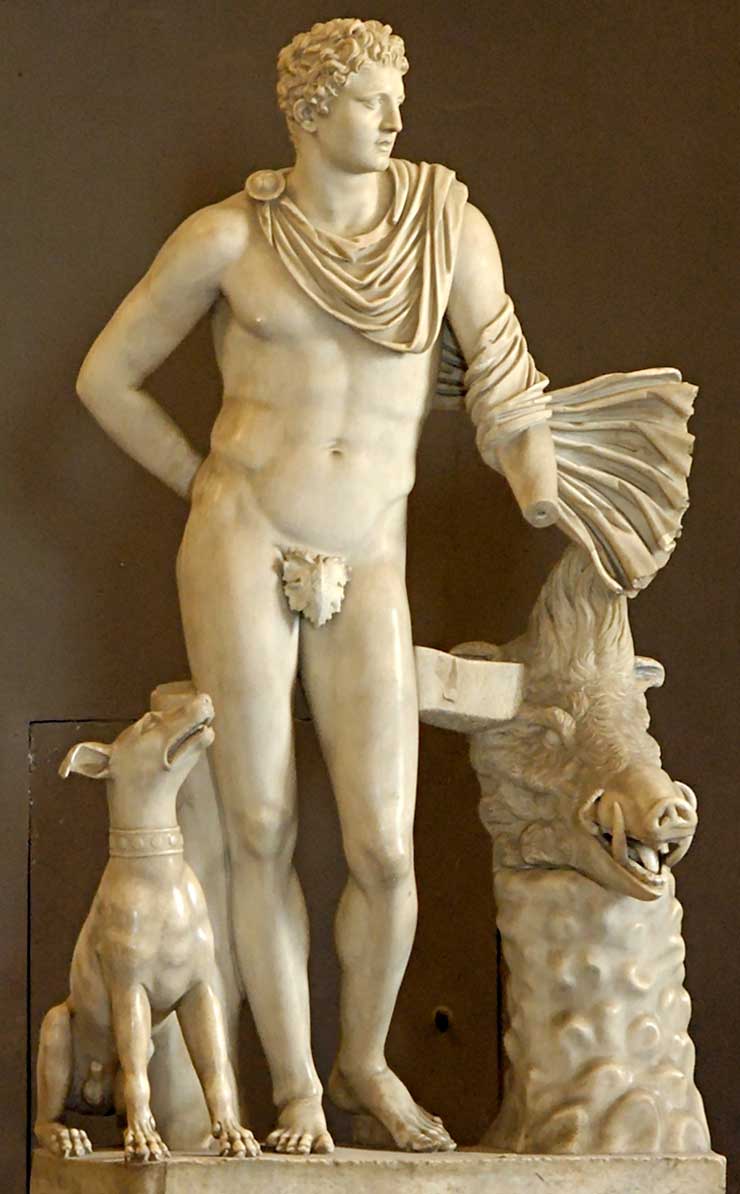
Meleager and the Calydonian Boar. Marble, Roman copy from the Imperial Era (ca. 150 AD) after a Greek original from the 4th century BC.
Arrogant and drunken, Meleager’s kinmen asserted that no virtuous woman would be hunting with men and that the shot was lucky anyway. Since everyone was drinking heavily of Oeneus’ fine wine (and since the guests were heavily armed) the quarrel flew out of control and, in the subsequent melee, Meleager slew both his own brother and his mother’s brother. In fury Althea rushed to her chambers and ripped the charred wood from its coffer. She ran back to the roaring bonfire where all the hunters and revelers were still stunned and hurled the brand into the fire where it was burned away in a moment leaving Meleander dead.
Thus was Artemis avenged on King Wine Man for slighting her in worship.

